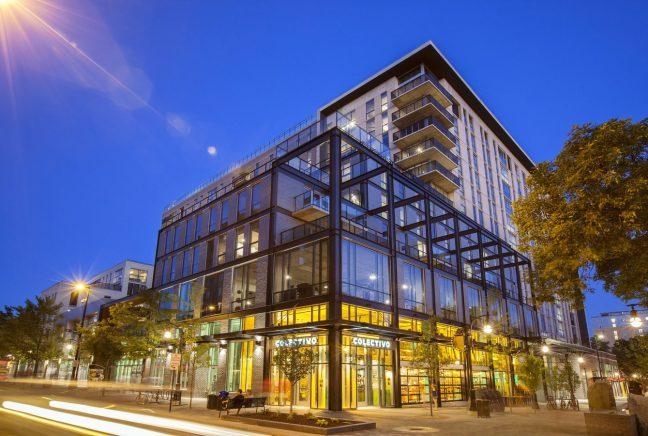Over the past few years, the city of Madison’s millennial population has been growing dramatically.
According to The Isthmus, out of the 100 biggest metropolitan areas in the United States, Madison is the number one city for young adults to reside in.
According to Kristopher Olds, associate professor in the Department of Geography at the University of Wisconsin, not only is Madison’s economy doing well, but there are plenty of job openings for graduates who are searching. These factors can make the city very appealing for young adults.
“It’s an expensive city, but compared to some of the bigger cities such as Boston or Chicago where these jobs are also available, it’s relatively more affordable,” Olds said.
Despite the growing economy and the abundance of job opportunities, the rapid influx of millennials to Madison has caused gentrification in many parts of the city.
Olds describes gentrification as a social change which happens within a city when more educated and affluent people move in and bring with them new ‘tastes and aesthetic values’ that change the original culture of that city.
“The Willy Street area has been going under gentrification for decades,” Olds said. “What’s been happening now is just evolution of that.”
Olds mentioned gentrification has been happening in Madison since the ’60s or ’70s and a lot of the people who were affected were working-class people. According to Olds, the same holds true today.
As mentioned on the UW website, when wealthier, more educated young adults move to Madison, they are primarily looking for housing in the downtown area. This high demand for housing allows landlords to skyrocket their rental prices.
“Rent has certainly been going up,” Olds said. “There are more people coming here with higher income and wages. … There’s not enough new housing being built and a lot of the housing that is being built is expensive.”
As stated on the UW website, when individuals are pushed out of the city, they move to more affordable neighborhoods where crime rates are higher. So, while gentrification might benefit the young adults moving into the city, it has an extremely negative impact on those who must leave.
“If you’re talking about the city of Madison and you’re talking about people who have relatively low incomes, they can face severe challenges and problems [due to the high cost of living],” Olds said. “There are some severe problems associated with the Madison rental market right now.”
UW junior Brittney DeBoer said, in her experience, students are having a hard time keeping up with the outrageous rent prices on campus as well.
DeBoer said she and her friends have had to practice time management and learn how to balance their schedules in order to keep up with the high demands and costliness of renting an apartment in downtown Madison.
“Being a full-time student is supposed to be our main focus and dedication, but when we need to come up with $650 a month, it’s hard to remain focused on your schoolwork,” DeBoer said. “You’re already stressed about your schoolwork, but on top of it you need to be working 30-plus hours a week.”
As reported in the Madison Magazine, Madison’s rental vacancy rate is roughly at 2.3% when the average vacancy rate for most cities is around 5%. This means the housing demand is high compared to the amount of housing actually available.
DeBoer said, the rentals are also extremely overpriced for the quality. Many landlords skyrocket their rental prices because they know that students will rent them anyway due to the lack of vacant housing in downtown Madison.
“I think that the quality of apartments is livable and doable but not ideal for the amount of money that I’m paying,” DeBoer said. “In Madison, it’s probably the best you’re going to get for the price.”
In mid-April 2019, Satya Rhodes-Conway was elected as the new mayor of Madison. According to her personal blog, she plans to focus a lot of the city’s budget on providing affordable housing for everyone and making Madison a more inclusive community.
Residents must be patient when awaiting change, however, because Olds added the change will not happen overnight.
“Some of these challenges related to rental housing have been brewing for decades now, so there’s not going to be an easy solution to this,” Olds said. “If it’s taken decades to come to where we are now, it’s not going to be resolved overnight.”


